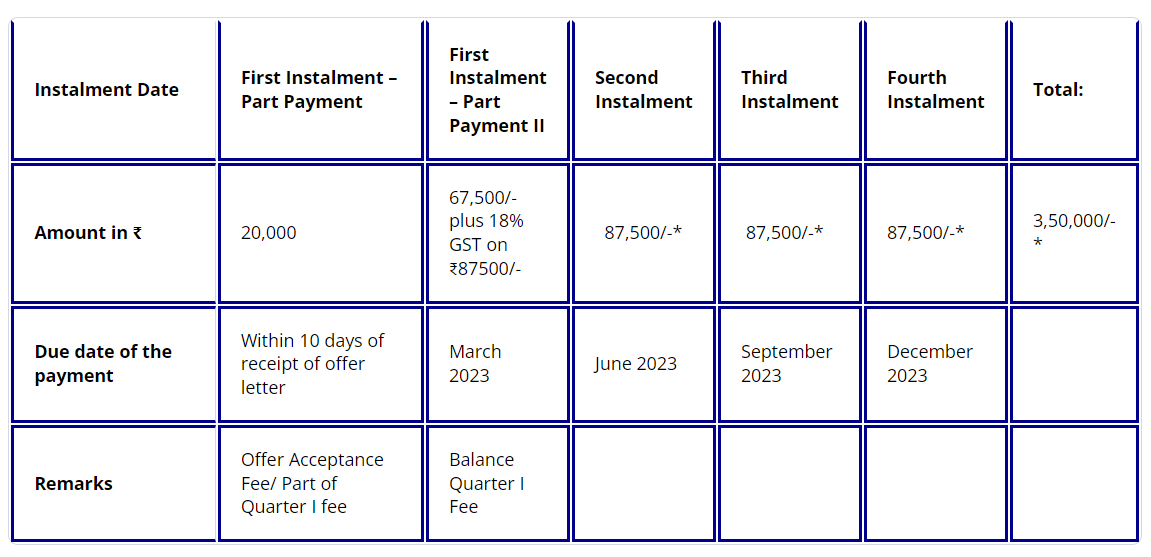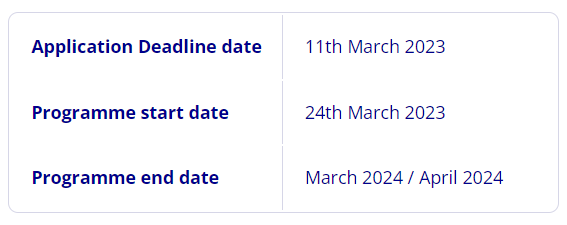The teaching approach for the IIM Kozhikode Financial Management programme will be interactive and
utilize technology to enhance learning. The pedagogy will be a blend of lectures, real-life case
studies, quizzes, assignments, lecture-discussions, case study method, behavioral and computer-based
simulations, projects, and class presentations.
Assessment for each course will include end-term examinations (after each quarter), quizzes,
assignments,
projects, and other methods.
Instructors will use a 13-level grading scale, ranging from A+ to F, to evaluate students' academic
performance in each course.
The grading scale and corresponding grade points are as follows:

The final Cumulative Grade Point Average (CGPA) for the program will be calculated by summing the
grade
points for all courses, multiplying by the credits for each course, and dividing by the total number
of
credits for all courses. This CGPA will be used to determine the award of the certificate.
Certification & Alumni status
Participants of the IIM Kozhikode Financial Management programme, on successful completion of the
one
year programme would be awarded, “Executive Post Graduate Certificate in Financial Management”.
Successful candidates will also be accorded IIM Kozhikode Alumni status.
Attendance Criteria
A minimum of 75% attendance is a prerequisite for the successful completion of the IIM Kozhikode
Financial Management programme for each course in each quarter.
Sample Certificate
×

 Programme Start Date: 24th March, 2024
Programme Start Date: 24th March, 2024
 Certificate from IIM Kozhikode
Certificate from IIM Kozhikode
 Direct-to-device
Direct-to-device
.webp)







